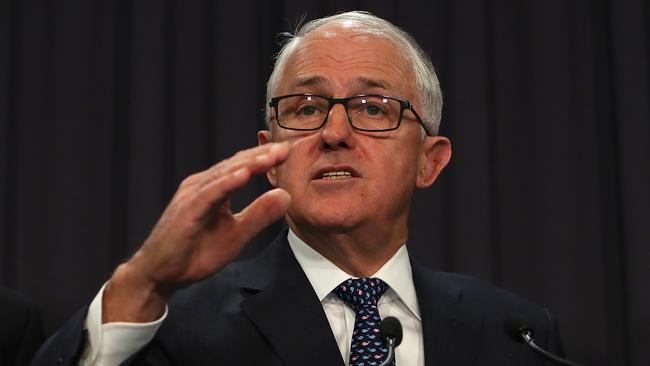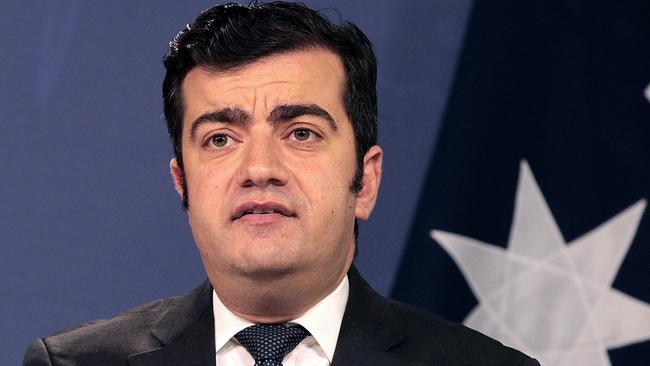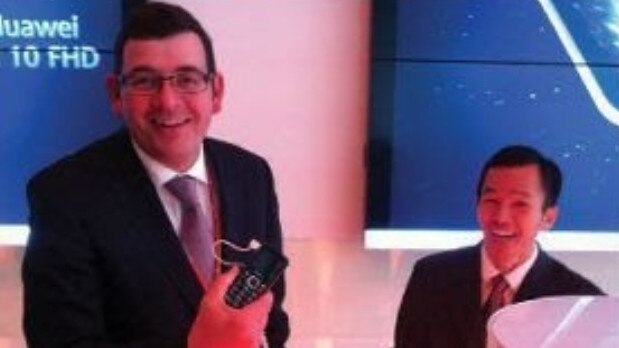Tom Minear: China’s front in need of scrutiny
The United Front is not just a Chinese government department. It has its tentacles in Australian community groups, universities, media outlets, political parties and businesses, and our confusion allows it to flourish, writes Tom Minear.
It’s four years next week since the beginning of the end of Sam Dastyari’s political career. Remember him? Dastyari was a rising Labor star until a storm erupted over his relationship with Chinese billionaire Huang Xiangmo.
First, the political donor spent $40,000 settling a legal matter for the then senator. Then, in the weeks before the 2016 election, Dastyari fronted Chinese media in Sydney with Huang and defied Australia’s position on China’s territorial claims in the South China Sea.
He was forced to quit his frontbench roles as the scandal opened our eyes to the Communist Party’s United Front operation and its influence and interference in Australia.
There has been significant change since then, none the least Malcolm Turnbull’s reforms to ban foreign donations and toughen espionage laws. But while our eyes remain open, it is clear Dastyari’s downfall did not teach us all the lessons we needed to learn.
The coronavirus crisis has turned the spotlight back on Australia’s relationship with China, and Victoria’s in particular, because of Daniel Andrews’ support for China’s controversial Belt and Road infrastructure initiative and revelations about Labor links to the United Front.
The problem is we still seem to have a limited understanding of what the United Front actually is, and instead of disrupting its work, our confusion allows it to flourish.
The United Front is not just a government department. It has its tentacles in community groups, universities, media outlets, political parties and businesses.

Chinese President Xi Jinping calls it a “magic weapon” as it expands and exports the Communist Party’s influence with espionage, interference and engagement.
Some of its work, like public protests and bolshie editorials, is easy to spot. What happens in the shadows — including co-opting Australians such as Dastyari — is harder to understand and explain.
That’s the mission of the leading analyst Alex Joske. His landmark report, released this week, argues Western observers do not know enough about the United Front and miss its significance because they reduce its methods within their own world views.
The Australian Strategic Policy Institute expert says diplomats see United Front work as propaganda and fail to appreciate the extent of covert spying, while security officials tackle the espionage risk but underestimate the influence of legal, public activities.
Politicians make the same mistakes.
Some are so hawkish that their criticism of the Communist Party ignores Australia’s need for a productive relationship with China and can harm Chinese-Australian communities.
Others are either naive or ignorant. Over the past two years, Premier Andrews has criticised and even mocked stories about Labor figures linked to United Front organisations.

This week, asked if he was worried about the United Front’s influence, Andrews said: “No. No more than I have been.”
He said Victoria’s relationship with China was 40 years old and he thought “we’d moved beyond some of those debates”.
Back in 2018, confronted with a story about a Labor-donating Chinese developer who appeared alongside the Premier in China, Andrews was even more dismissive.
“In China, there are Chinese people and there are Communists in China. That’s apparently news,” he said.
Suggesting scrutiny is akin to xenophobic China bashing isn’t just unhelpful — it’s straight out of the Communist Party playbook.
Prime Minister Scott Morrison was guilty of the same mistake last year when he suggested it was racist to probe Gladys Liu’s United Front links, outraging some of his colleagues.
We have not done enough to understand the problem we are facing.

The United Front, by its very design, is a threat to our sovereignty. Aside from closing
the knowledge gap, what else should be done?
Joske proposes rejecting the visas of United Front figures, fixing the foreign influence transparency register and beefing up security agencies to investigate interference. These ideas have merit, and will appeal to the hard-line hawks.
But Joske also suggests more nuanced measures that may have a bigger impact: supporting independent Chinese media, enforcing conflict-of-interest rules for public servants, and boosting Chinese language education.
The last idea is particularly important. While some United Front figures are not shy about promoting themselves online, the lack of language skills among journalists, academics and
political staffers allows much of this to stay secret.
And it helps explain why Australian politicians have employed, mixed with and accepted money from Chinese-Australians with questionable allegiances.
We also need more Chinese-Australians in parliament.
For Australia’s 1.3 million people of Chinese ancestry, this would give them a greater sense
of representation and belonging, both in politics and in our multicultural society.
We won’t get all of this right overnight. It’s worth remembering Dastyari managed to win back a senior Labor position, only to have to quit parliament a year later, when it emerged he told Huang his phone was likely tapped by security agencies.
This is an issue that will define the century. Australia will only get so many second chances.
Tom Minear is national politics editor

